INDUSTRY INSIGHTS:
Performance by Company SizeThe Sustainability Consortium (TSC) is increasingly seeing and hearing that sustainable operations and supply chains create long-term returns in more resilient companies, better product availability, and improved customer choice in sustainable product offerings. Due to the required up-front investments in sustainable practices, including human resources, it may be natural to assume larger companies implement more sustainability practices than smaller companies (a.k.a. Small and Medium Sized Enterprises, or SMEs) because the larger companies likely have access to more resources.
About 70% (1207) of consumer goods brands and manufacturers who used THESIS 2020 to assess the sustainability of their products provided information on their company size (by amount of annual revenue).
An analysis of their results challenged this assumption by finding no statistical or practical difference between sustainability performance, measured by THESIS scores, of companies of different revenue size. Some large companies scored relatively low while some SMEs scored relatively high leading one to believe that all sizes can demonstrate sustainability leadership.
There is, however, a noticeable difference in sustainability performance depending on whether the company has any dedicated sustainability staff. It may be that in the beginning of a company’s sustainability journey, the dedication of at least one staff position is key to making the next step up in performance.
THESIS score versus company size
Does company size correlate with sustainability performance represented by THESIS scores? TSC’s hypothesis was that larger companies would have better scores because they, in general, have more resources to implement sustainable practices.
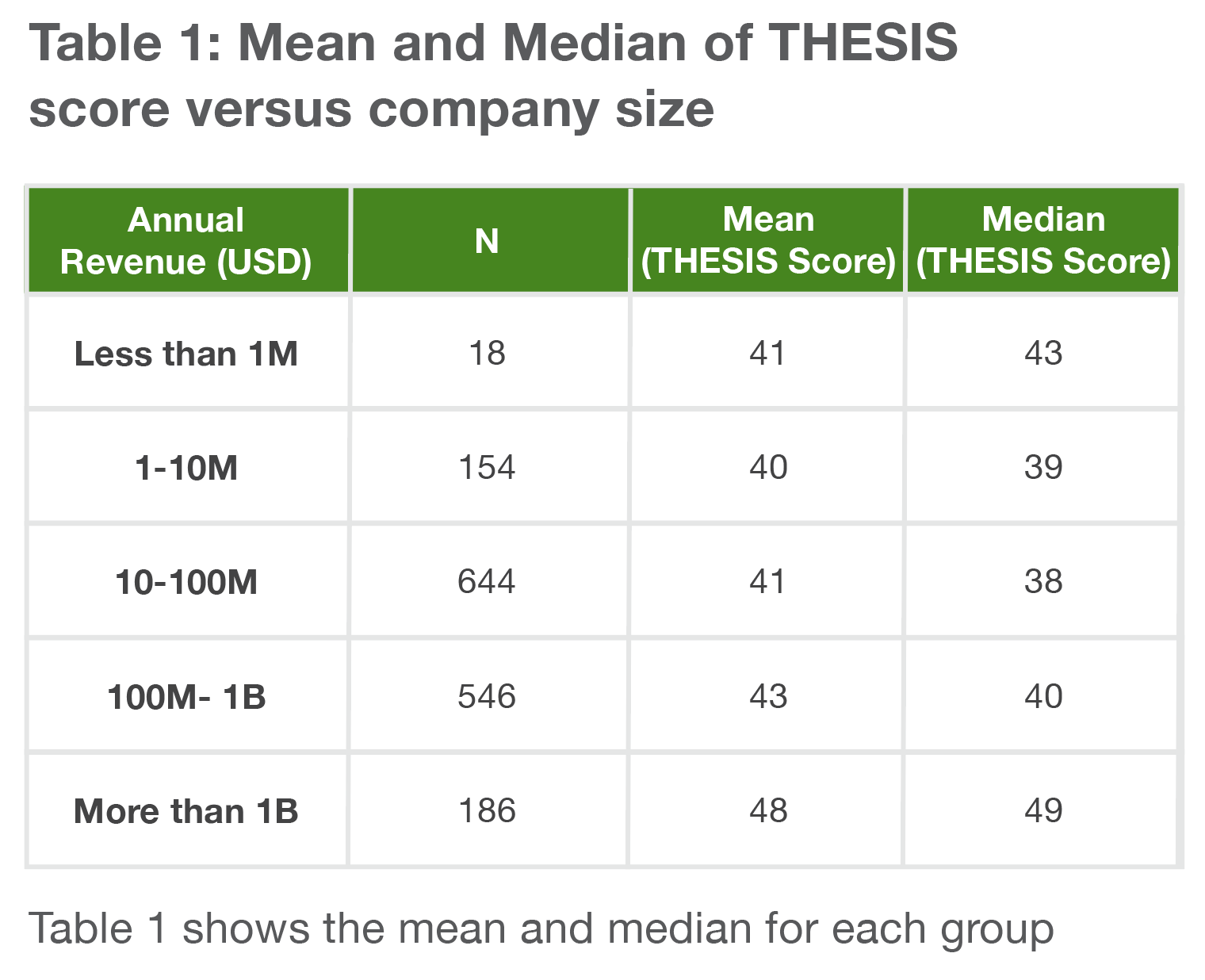
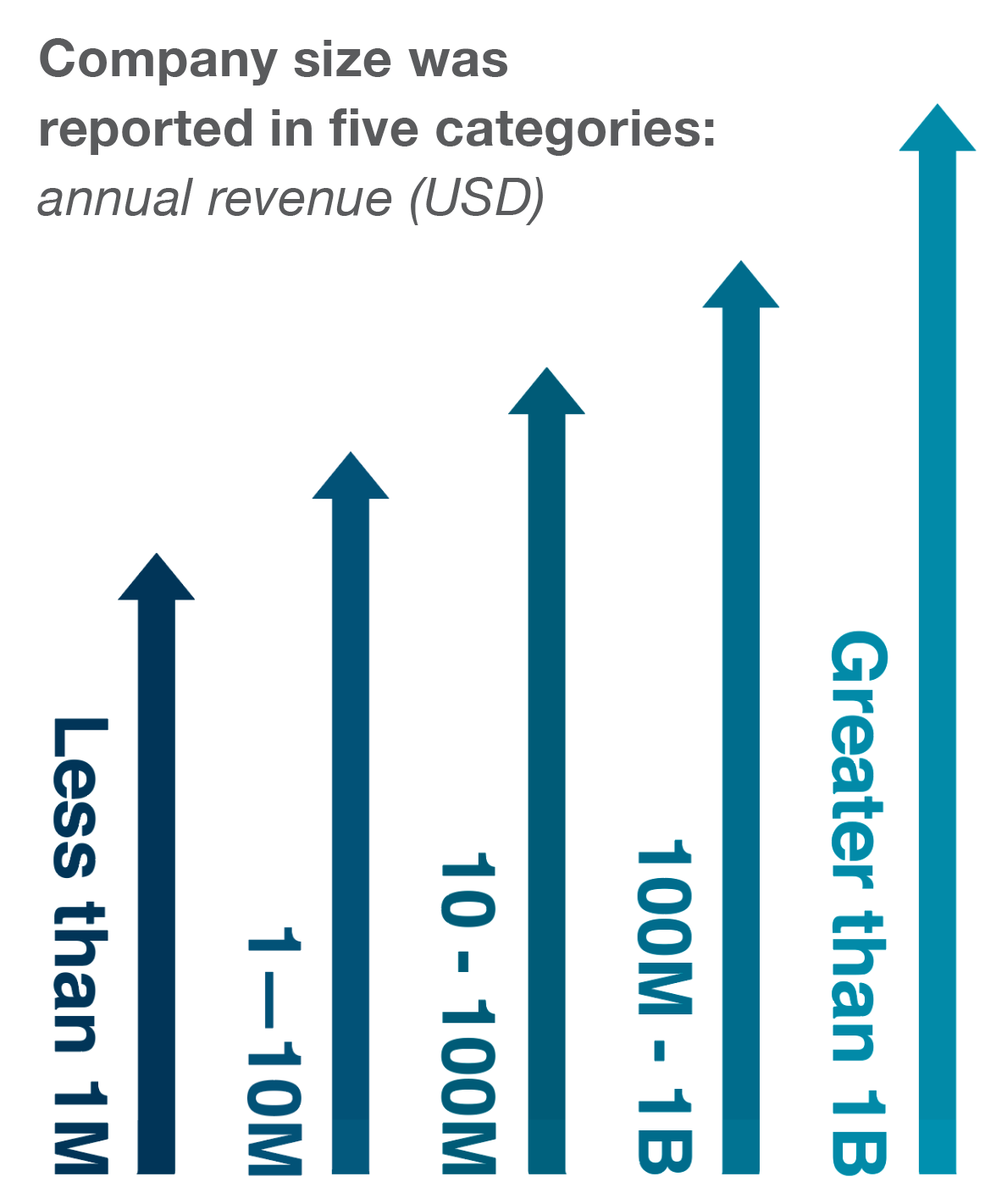
Figure 1 is a dot diagram showing the distribution and spread of scores across the different company sizes.
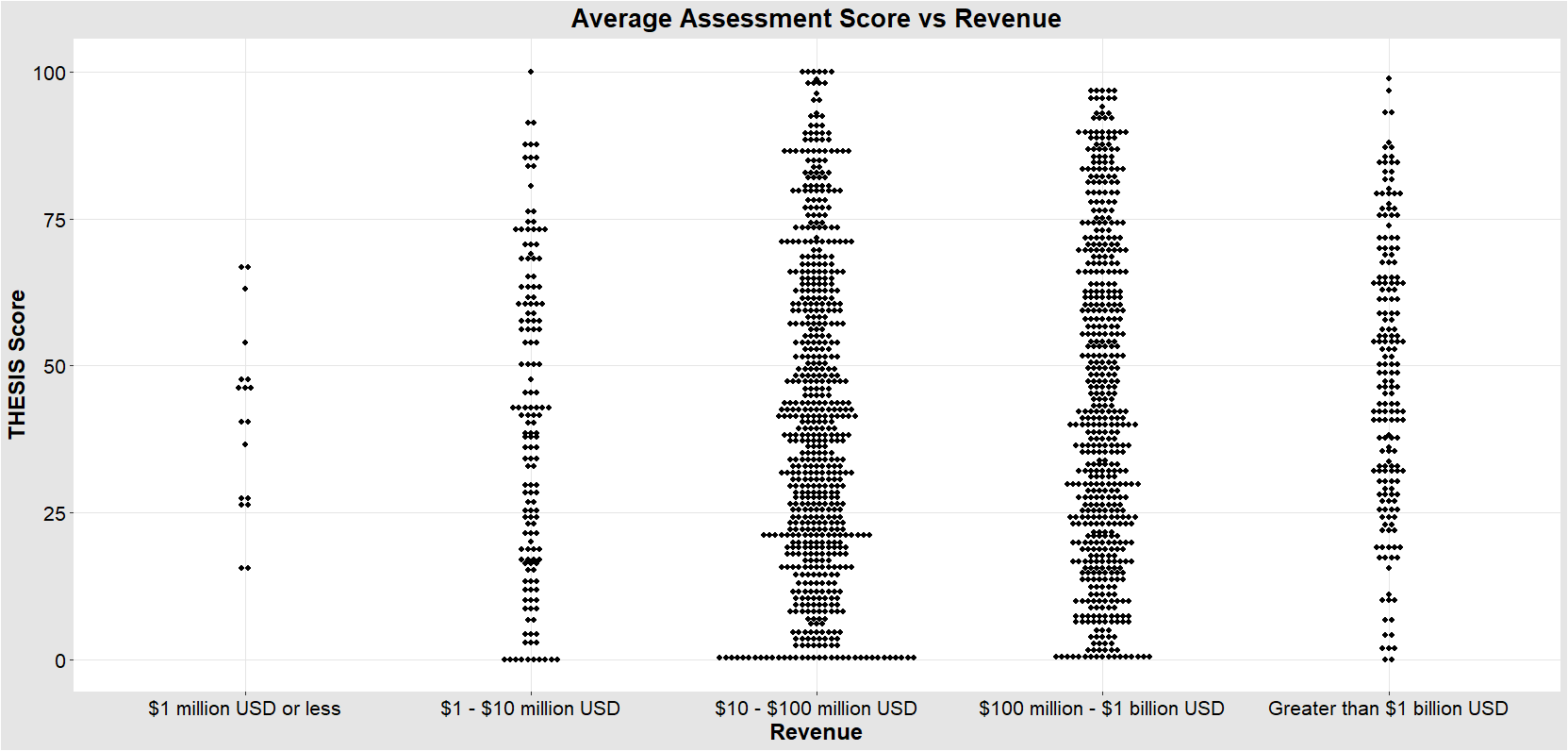
Figure 1: Distribution of THESIS scores by company size. Even though the numbers in Table 1 are literally different, Figure 1 shows there is no practical difference in score versus size, and most of the relevant statistical tests do not indicate a difference in average score.
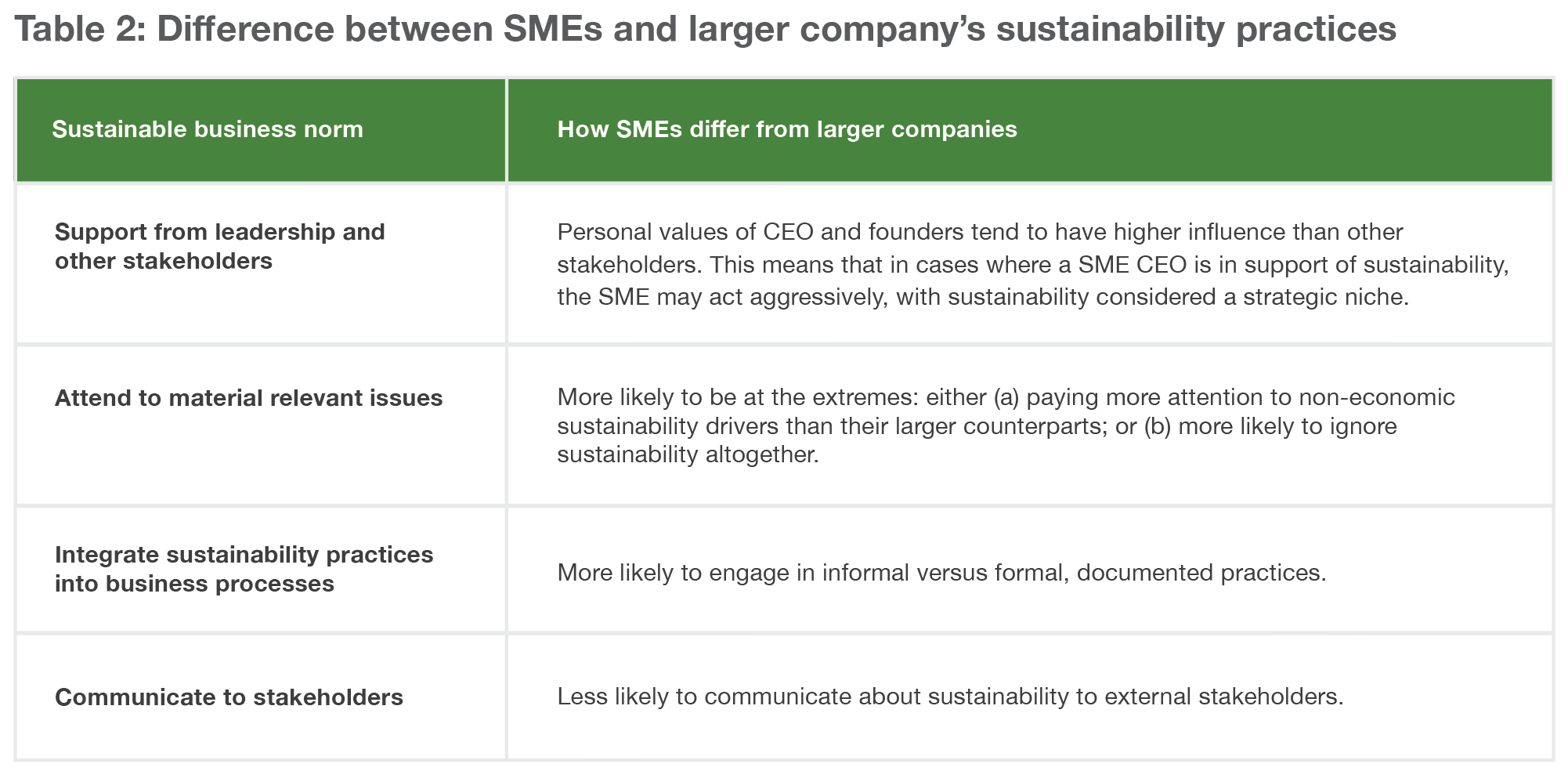
How are SMEs and larger companies different?
The results above do not imply that company size does not matter. Any company will have to overcome challenges and take advantage of opportunities to make sustainability progress. Rather, the type of challenges and opportunities faced by SMEs versus larger companies are different. Table 2 lists some of the basic tenets of effective sustainable business practice, contrasted with what the research says is often different between SMEs and their larger counterparts.
Studies report that the main barriers to SMEs implementing sustainability are time, resources, and knowledge, and that they may have a more difficult time making the business case for sustainability than their larger counterpartsi.

SMEs are as likely to adopt sustainable practices as their larger counterparts if they have overcome the limitations of lack of attention due to limited resources and can establish a business case that is supported by company leadershipii. Similarly, once implemented, sustainable practices yield the same level of benefits to SMEs and larger companiesiii.
Strong performance in sustainability relies on supply chain transparency. Let’s consider the differences faced by SMEs versus larger companies in this regard. A SME may have an excellent opportunity to achieve full transparency into its key supply chains because it is small enough to depend solely on a proprietary supply chain, where stronger buyer-supplier relations and incentives can drive upstream suppliers to engage with the brand. Conversely, a SME may not be large enough or have enough resources to have any proprietary suppliers and may instead have to rely solely on commodity supplies that have little traceability, let alone transparency. A large company may have the power and resources to create proprietary supply chains, but it may require too much quantity of supply to be covered alone by a single supply chain and may have to depend on commodity supply chains for a portion of their supply. SMEs and non-SMEs have different forces enabling a high performance or being constrained to a lower performance on THESIS KPIs related to their supply chains.
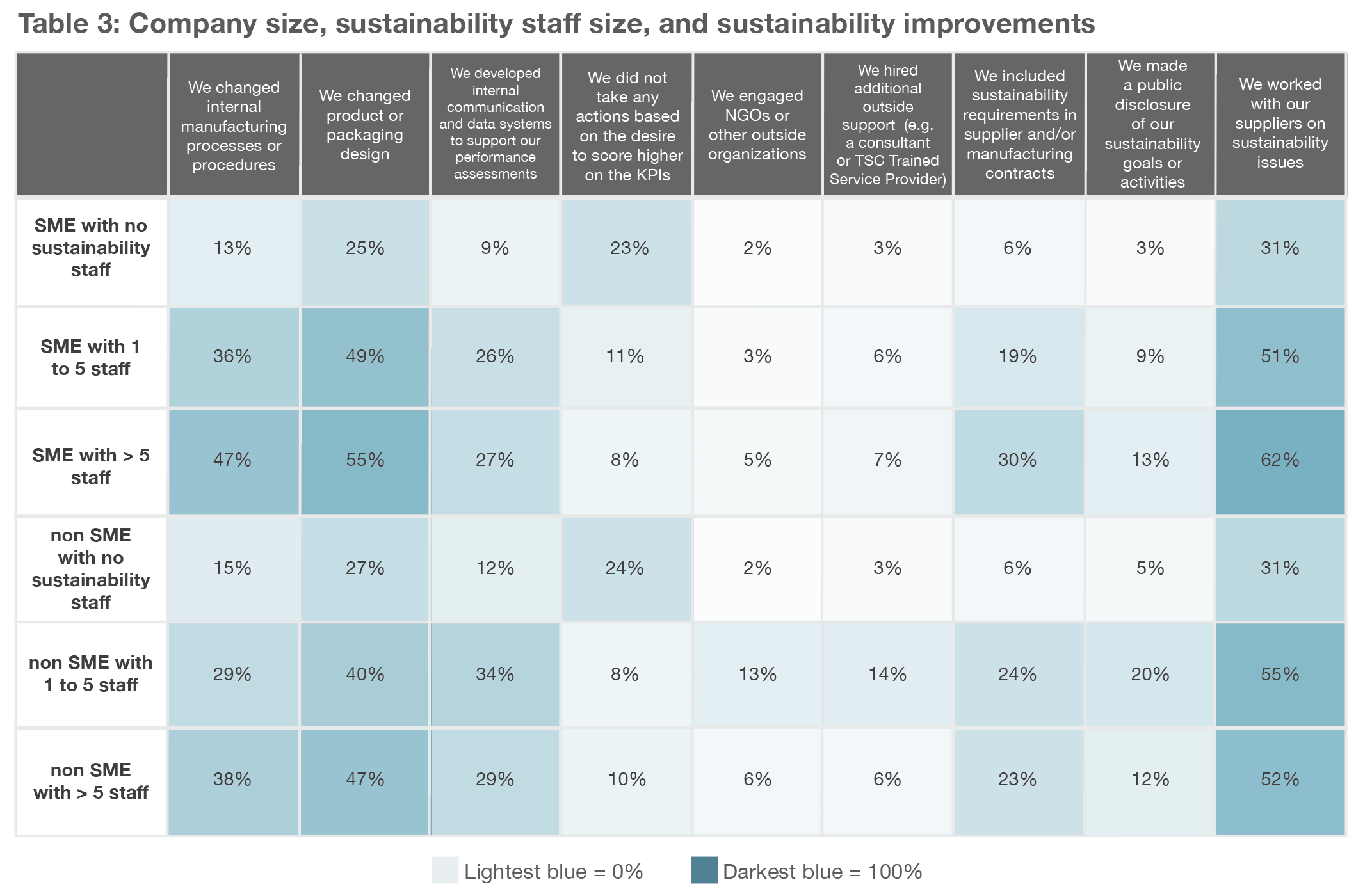
Dedicated sustainability staff may be critically important
When examining the correlation of company size with different types of sustainability improvements, one can gain additional insight (see Table 3). Table 3 aggregates the five company size categories into two: SMEs with a revenue of less than 100M USD annual, while non-SMEs have a revenue over 100M USD annual. These are further subdivided by the number of sustainability staff that were reported: none, 1-5 people, or more than 5 people. Sustainability-related actions are shown in each column. For example, the 36% in row 2 column 1 means that fraction of THESIS users who are SMEs with 1 to 5 staff reported they had changed internal manufacturing processes to obtain a higher THESIS score.
Two patterns stand out in these data. First, comparing the frequency of different practices between SMEs and large companies with the same sustainability staff size, implementation rates are not that different. For example, amongst companies with more than 5 dedicated staff, 30% of SMEs included sustainability requirements in contracts while 23% of larger companies did the same.
Second, the biggest “leap” in these percentages is between “no sustainability staff” and one or more staff. For example, 25% of SMEs and 27% of non-SMEs with no staff reported they changed product or packaging design, while that percentage was above 40% for SMEs and non-SMEs with one or more sustainability staff.
Tips from an SME and Resources
After years of using THESIS to assess its sustainability performance and share results with key retail customers, AlEn joined TSC’s new membership program targeting SMEs. And since THESIS data indicates that a major factor in improving sustainability performance is having at least one staff person dedicated to sustainability.
AlEn offered the following tips for peer SMEs looking to improve their sustainability performance:
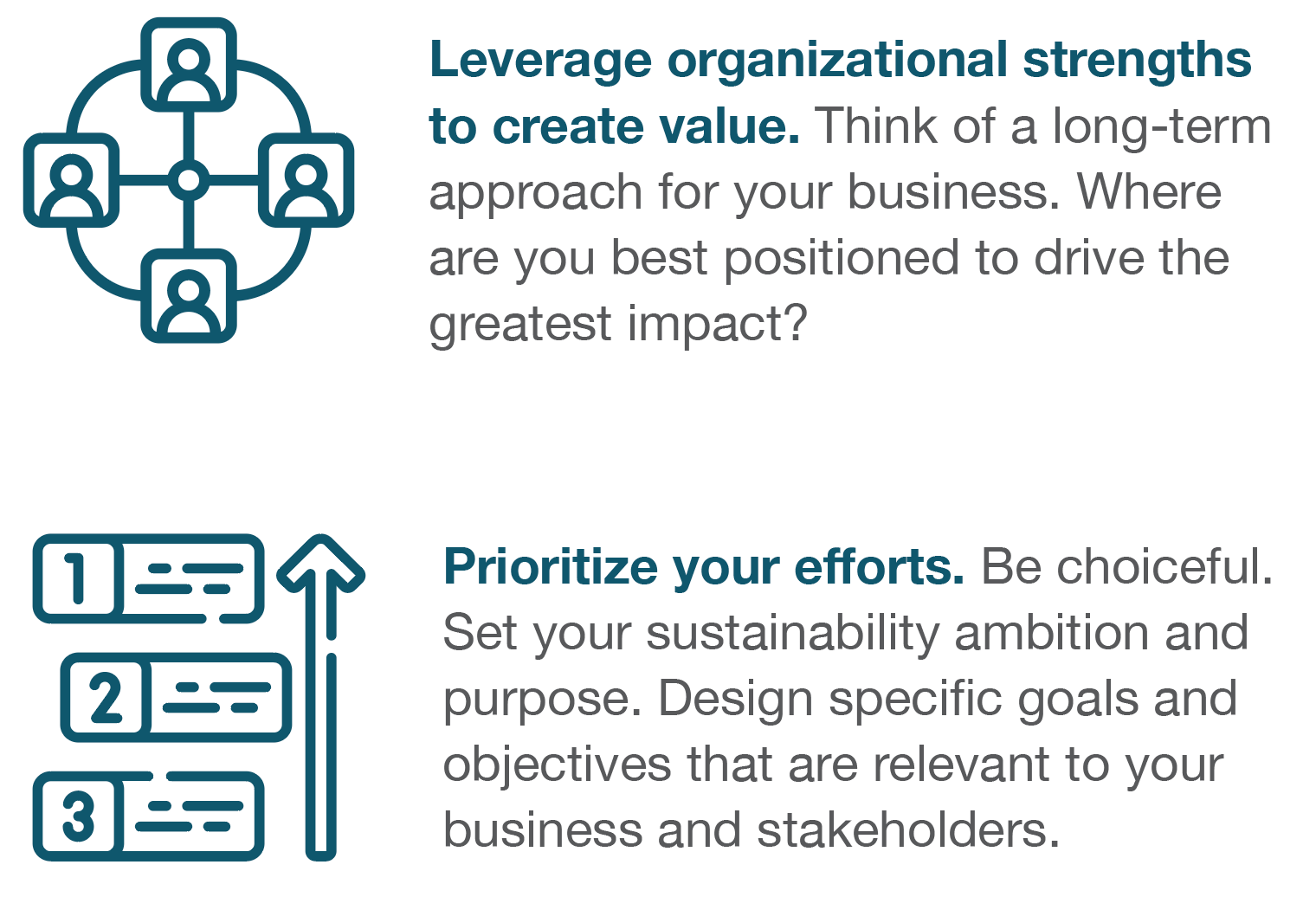
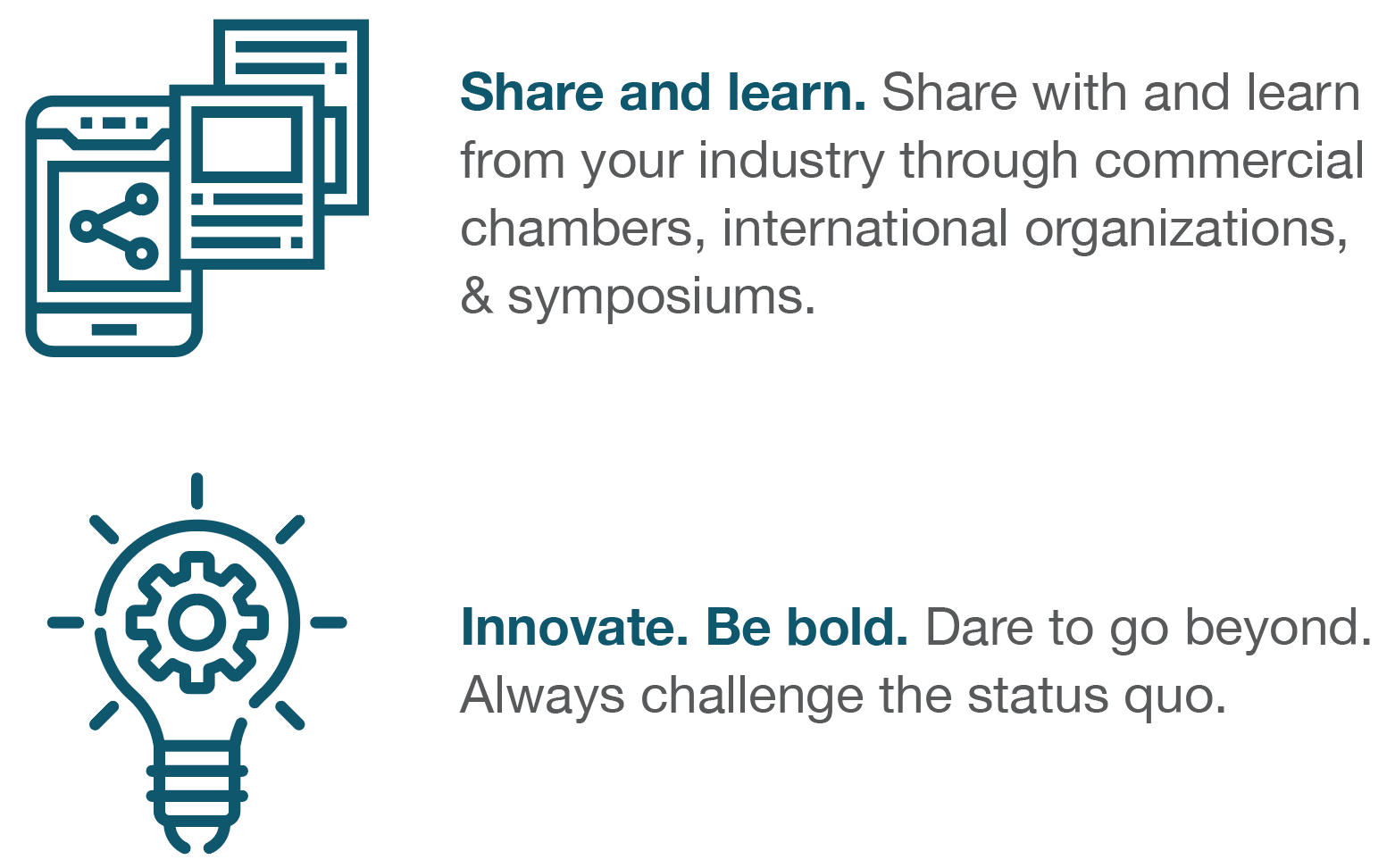
We leave you with the following resources for hiring your first CSO/sustainability manager:
How to Hire a Successful Sustainability Manager, Sustainability Consulting Blog
Why Your Company Needs a Chief Sustainability Officer, Medium
Why Your Company Needs a Chief Sustainability Officer, Maureen Kline
Special contribution from AlEn
The Sustainability Consortium (TSC) is a global non-profit organization working to transform the consumer goods industry by partnering with leading companies to define, develop, and deliver sustainable products. The Sustainability Insight System, or THESIS, is the independent, science-based, holistic sustainability performance solution created by TSC that allows brands and manufacturers to understand the sustainability story of their products. In 2020, THESIS was used by over 1700 companies covering products representing over a trillion (U.S.) dollars in annual sales.
THESIS INDUSTRY INSIGHTS ARE A UNIQUE SOURCE FOR HOLISTIC DATA AND ANALYSES ABOUT THE CURRENT STATE OF PRODUCT SUSTAINABILITY.
